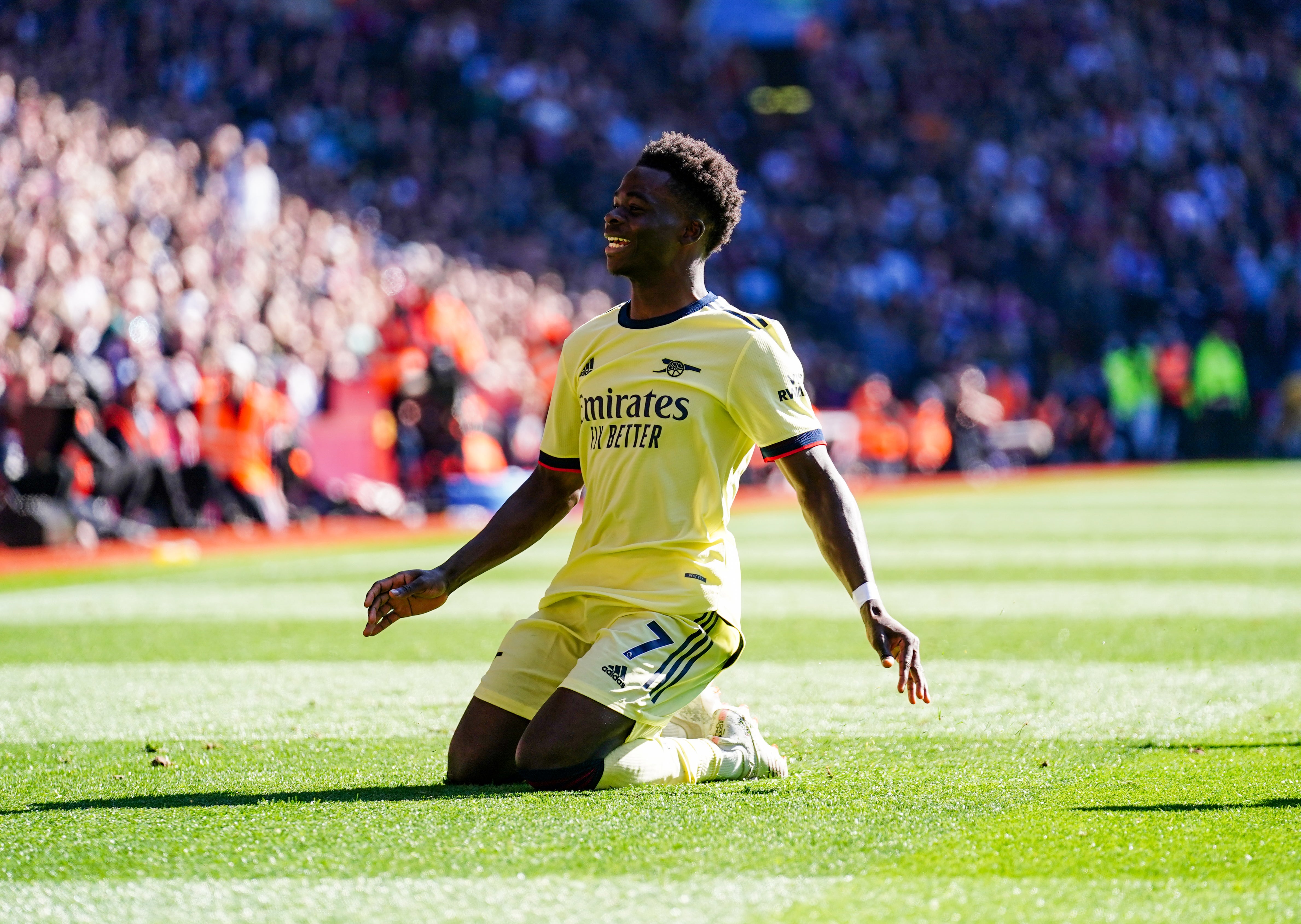
Fourth place, Arsene Wenger famously used to argue, is like a trophy. It was a controversial assertion for traditionalists and perhaps the footballing pensioner Ashley Young ranks among them. He accused Arsenal of celebrating victory at Villa Park “like they won the league”.
But they are on course to win a four-club mini-league of the candidates to claim the last Champions League spot. Or, indeed, a 17-team division if three of Europe’s top four or five sides are excluded. It can be framed in various ways but a top-four finish would rank as a major achievement, perhaps a greater one than the trophy their manager did win. “We’re on our way to Champions League,” was the last line of a new chant hailing “super Mik Arteta.”
Amid the celebrations that irritated Young came a throwback to Highbury history, a chant of “one-nil to the Arsenal”. Ben White and Gabriel Magalhaes probably did not grow up with posters of Tony Adams and Steve Bould on their wall and George Graham’s legendary offside trap was not required to restrict Aston Villa to one, very late, shot on target.
Because, as the latest addition to Arsenal’s songbook suggests, they are not doing it Graham’s way or Wenger’s but Mikel Arteta’s. There were passages of play, especially in the first half at Villa Park, that showed a tactical blueprint that has gradually been implemented. There were periods in Arteta’s first full season when Arsenal were too slow and structured, their pre-planned moves stripping them of spontaneity as goals became a rarity. Now a vision is nearer realisation. Arsenal excel at working overloads on one flank: sometimes it lends incision but at others it drags opponents over to that side.
But it is an approach that comes with a Plan B, the quick cross-field ball to the emptier other wing. In Martin Odegaard and Emile Smith Rowe, they have players who excel at those diagonal switches. The inspiration may come from Pep Guardiola, another who likes game-stretching width, but it has been executed by his former assistant. Perhaps it was symbolic that a winger was the match-winner, albeit with a goal from a central area, because Villa were outwitted in wide areas. “Mikel and the coaching staff have clearly taken big strides with Arsenal,” noted Steven Gerrard, who tended to get the better of Arteta in Merseyside derbies but did not in their first managerial meeting.

A sizeable step forward has come courtesy of strategy, from the training ground and the tactics board, from teamwork and emerging players. It makes Arsenal the antithesis of their rivals for fourth place. Manchester United can look reliant on individual inspiration, on thinking that if they have enough potential match-winners one will prove decisive. United have imported superstars; Arsenal have expelled them, in Mesut Ozil and Pierre-Emerick Aubameyang. But their general standard of play is superior to United’s: slicker and cleverer, with more coherence and evidence of coaching.
Ole Gunnar Solskjaer used to pride himself on his supposed cultural reset at Old Trafford. If signs of it have been harder to detect this season, Saturday’s beaten manager detected a shift in attitude at Arsenal. “They’re in a really good place but what’s clear is that it has taken time,” said Gerrard. “There has been a lot of turnover of players and staff, a lot of changes to the culture and mentality.” The clear bond between the supporters and a likeable, improving group of players also feels part of the Arteta effect.
There have been points in the Spaniard’s reign when the temptation has been to wonder if it was illusory, if the summer of 2020 was a false dawn and if he was actually overseeing a descent into mediocrity. Now it feels as if a long-term project will contain proof of progress.
They look good enough for the top four. “One hundred per cent,” Gerrard said. “Have they lost one in the last 12 or 13?” It is two in 13, actually, but they were to Manchester City and Liverpool. They are not at the level of the best but a formula of consistency against the rest could bring a reward. If Graham and Wenger reinvented Arsenal, now Arteta could emulate the Frenchman. Not in his double-winning or Invincible years, but in the latter period where he took them into the Champions League. As Wenger realised then, it is no mean feat.







